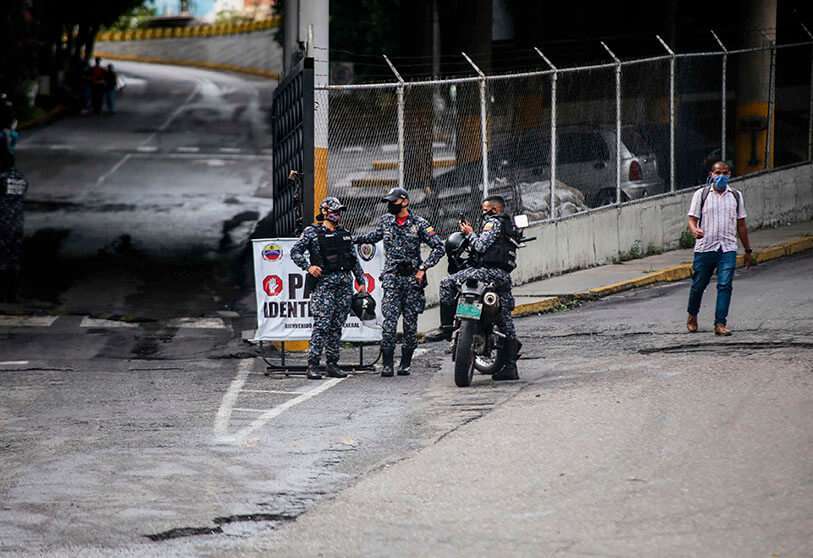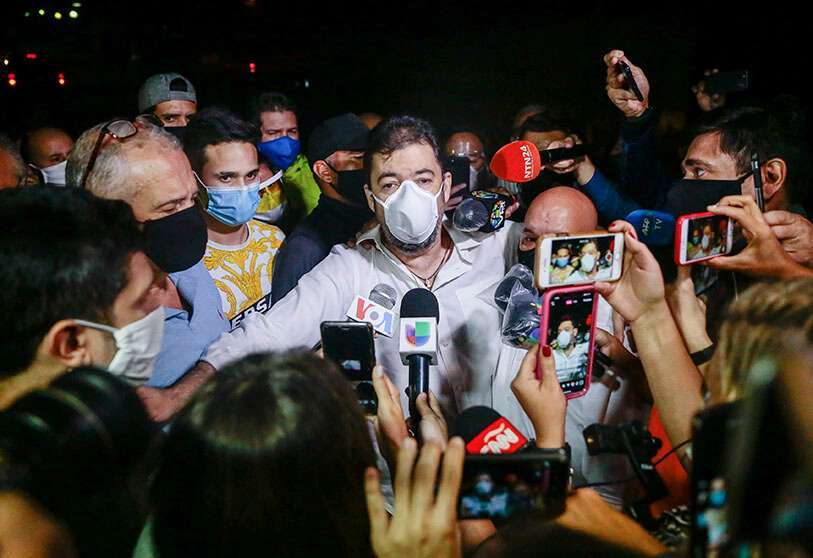Pardon or dismissal?

Pardon: "a grace exceptionally granted by the Head of State, by which he totally or partially pardons a penalty or commutes it to a more lenient one". This is defined in the Dictionary of the Royal Spanish Academy. This definition is not in line with Nicolas Maduro's decree "pardoning" 110 people, most of whom have not been sentenced or tried.
And neither with the Venezuelan Penal Code, which coincides in its definition with the RAE, although it adds that "it can be granted in any phase of the process and not necessarily after a definitive sentence is issued".
But it implies that the person who is granted the pardon must at least have been prosecuted, so the President has not pardoned more than a hundred people, as the document states, but only those who were in prison or, even on parole, had faced at least part of the criminal process.
Although not all the prisoners had been tried or sentenced, they were deprived of their liberty for reasons that were not always notified and, therefore, in a position to be pardoned while serving a more or less fair sentence.
The presidential decree does not mention the alternative of "dismissal", which is more in line with its meaning, to the act by which the president granted benefits to 60 people who had been accused of various crimes, but who were not tried or tried and were free, although some of them were forced into exile to avoid prison.
"Action and effect of a dismissal (ending criminal or penalty proceedings without reaching a decision on the merits) which, because it is clear that there is no offence or that the defendant is irresponsible, terminates the proceedings with effects similar to those of a judgment of acquittal". This is how the RAE defines the dismissal, also coinciding with the Criminal Code.

The dismissal of a case implies a previous recognition that there has not been a crime for which someone is accused, in this case, in an erroneous or illicit manner, and would immediately give reason to those who accuse the Maduro government of persecution for political reasons without having committed a crime or violated laws, as contemplated in the Criminal Code.
Furthermore, the dismissal cannot be granted as a "political favour" by a representative, but must be requested by the Public Prosecutor's Office and subsequently accepted and signed by a judge.
Both various sectors of the Venezuelan opposition and the international community accuse the executive of colluding with the Prosecutor's Office and the courts to accuse anyone who does not stand by Chavismo or share the government's views of crimes that do not exist.
If the pending but unproven cases were recognised as having been dismissed, the president would be attacking his own discourse in which he accuses people of crimes such as treason, terrorism, public instigation, conspiracy, instigation of insurrection, civil rebellion, conspiracy to commit a crime, hatred or usurpation of functions of people who have not been tried or convicted.
However, a pardon does not require any justification or acceptance of mistakes or wrongdoing in imprisoning someone for political reasons.
But even though Maduro used the term "pardon" to release prisoners and dismiss pending cases, his decree is only half true. Only a maximum of 50 people out of the 110 mentioned were pardoned, since they were in prison, as it is semantic and legally impossible to pardon someone who is not subject to a prison sentence or criminal proceedings.
Such is the case of the deputies whose immunity was lifted by the National Constituent Assembly (ANC) and who, according to Maduro's decree, receive the favour of the decree by lifting the lift. These legislators were never prosecuted or imprisoned, but only left without parliamentary protection, and therefore cannot be pardoned.

After the Minister of Communications, Jorge Rodríguez, announced the presidential decree at a press conference, reactions were swift and many voices expressed Maduro's "deception" on social networks, calling it a "strategy" for the legislative elections on December 6.
While the president's faithful supporters described the event as a gesture "to achieve peace and dialogue in Venezuela", his detractors are wary of what will come next. And despite the joy at the release of the prisoners, they still do not believe that behind the benefits the decree grants to 110 people there is only goodwill or the intention to achieve national reconciliation.

Although most of the opinions were expressed, either anonymously or nominally, on social networks, these were joined by more popular ones, such as that of the opposition leader Juan Guaidó himself.
"Maduro granted pardons to 110 opposition deputies, leaders and social leaders in an attempt to legitimise the parliamentary elections on December 6, which the bulk of the opposition describes as a farce," claimed the president of the National Assembly.
He also recalled that this "has happened before: they are being released to try to legitimise the manoeuvres of the moment. And this time, they want to legitimise a farce. A farce that has been defeated on a legal, political, popular and international level. It is a trap and we are not going to fall for it".
Referring to those who are, in his opinion, "political prisoners", he said that "they should never have passed a single second through that hell. Neither they nor their families. What a hug for the relatives of those who have been released today. I share the feeling you and your families have tonight".








